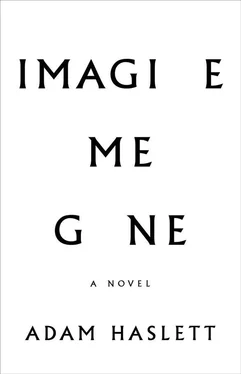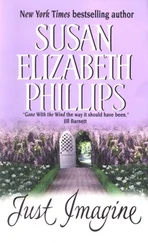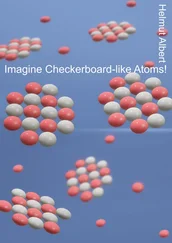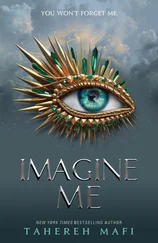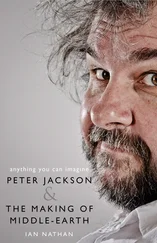It was on that walk that I noticed I didn’t have to slow down anymore for him to keep up. I was the one trying to keep up with him.
The general store hadn’t changed. It was a barn of a place, drafty, with high ceilings and creaking floors, built out onto the pier. Nearby was the dock where we used to tie our boat up to buy gas and supplies before setting out for the island, and opposite that a jetty where the lobstermen kept their skiffs. What had disappeared was the diner and fish fry next door, replaced by a pricier restaurant advertising “the Real Maine Experience,” closed till spring.
I got us coffee and doughnuts and suggested we eat them at the counter. The longer we were out, the better. When we finished I convinced him to walk with me past the harbor to the other end of the village, and from there we went out the lane to the point, with its war memorial and the plaque to fishermen lost at sea. On the unprotected side of this spit of land the tide had washed the snow off the rocks, leaving visible clumps of gray-green seaweed.
Standing in the wind, looking out across the frigid water, I thought, This is absurd, our being up here alone in the cold. It’s romantic nonsense. I’m probably about to lose my job. I need to be back in the city, hustling. And if I’m unemployed, how long will it take before I lose the apartment? Then what? Force a move with Seth before it’s right? What good would all this be if it left me that far in a hole?
“We had a picnic here,” Michael said. “Do you remember? Kelsey killed a lamed seagull. She finished it off. Strange. This is the first place up here I even recognize.”
“She killed a seagull?”
“Well, Dad wrung its neck when she was through with it, but I think it was fairly dead. Celia objected on procedural grounds — that we hadn’t taken it to a vet. It was definitely right here. It’s vivid as all get-out, actually. Like it was a minute ago. I can almost hear it. Maybe this is what it’s like taking hallucinogens.”
“No, that’s different.”
“You’ve taken them?”
“In high school.”
He nodded slowly, as if to say, That makes sense, though it still seemed to surprise him. That he had been oblivious to this episode in my social life.
“I guess we didn’t talk much then, while I was away.”
He said it as if it had never occurred to him before. It was a simple enough statement, an obvious fact, and yet I found myself, without warning, close to tears. I’d always wanted to hear from him. To know what he was doing in London, or just to hear him talk. But whenever he called it was to speak to Mom or Dad about school or money, and we didn’t say more than hello. He sent cassettes in the mail a few times, but the only words that came with them were the track listings and Post-it notes warning This will slay you! or Beware!
“You liked it there, didn’t you?” I said, as we crossed back over the empty parking lot toward the village.
“I did. I fell in love with a woman named Angie. That was the beginning. It’s odd, but when I say that, I can smell the perfume she wore. I can smell it in my head.”
I smiled to myself. When had I ever taken a stroll with Michael and heard him reminisce? The veil between himself and the past was lifting.
At half his usual dose his sleep got worse. By the end of our third week he couldn’t concentrate long enough to make it past the first few scenes of a movie, or even to pick out a DVD in the first place. He became fixated on the sound of the guy across the street chopping wood, asking me every few minutes, “Why does he go so slowly?”
But the bursts of memory kept coming. He had always said he had difficulty picturing our father, or much of his childhood at all. But now, along with his monologues about how he couldn’t go through with our plan, how he would never be able to do his real work again, how he had failed and had no prospects, there were these fragments of the years gone by, which descended out of nowhere. They were questions, mostly.
“Mom and Dad never drank much, did they?” he asked, as if suddenly recalling a detail of an otherwise elusive dream.
They were just single moments at first. He asked if it was true that I had broken my arm falling out of a tree in the garden in Oxfordshire, and I said, Of course, amazed each time that he could have forgotten such familiar stories.
“And I drove with you and Dad to the doctor, right?”
“Yes.”
“At the octagonal house — Dad, he told us stories.”
“Yes” was all I could think to keep saying.
By the time I had lowered him to a quarter ration, his body began to ache. His muscles were seizing up from the loss of the drug’s relaxant effects. I bought him Tylenol and a heating pad at the drugstore. And when he had a particular spot that was killing him, I kneaded his back with my knuckles through his hoodie, which he kept on no matter how far I turned up the heat.
I was working a kink in his shoulder blade as he stood braced against the frame of the kitchen door when he said, “You let the snake into my room, didn’t you?”
I stopped rubbing. This wasn’t just his voice returning. He was going all the way back now. As if he were a teenager again, talking to his younger sibling. The immediacy of the tone, the urgency of the question, as if it had happened only minutes ago, took me right back there with him, outside the door of his bedroom in Samoset, there on the landing.
“That night the snake got into my room, you let it out, didn’t you?”
He had lavished so much of his attention on that creature. I had been forbidden by our mother to touch it. No matter how many times I asked. I was too young, she said. Michael would sit with it on the back steps, wearing one of Mom’s tennis visors and a pair of her giant sunglasses, the snake coiled on the cutting board on his lap. “It’s basking,” he would say, “as we all deserve to bask.” Kelsey would stand vigil with me, intent on the serpent creature, its scales glistening like polished tiles, its forked tongue darting out to test the air, its lidless black eyes milky calm.
“It was after we went to the landing with Dad,” Michael said now. “After you jumped in the mud.”
That day, the one he meant, I had asked on our way home from church if we could take the Sunfish out on the bay, but everyone in the car had claimed it was too cold and too late in the year. Except Dad, who said, “Why not?”
“Then take Michael with you,” my mother said.
But Dad didn’t check the tide schedule before we left, and when we got to the landing the boats lay tilted on their sides across the mudflats. It had always looked like ordinary mud to me, but we’d been told it was dangerous, a deep silt that a man had drowned in once. We stood directly over it, at the end of the stranded jetty. Dad was already drifting off, beginning to think about other things. If we went home, he would read the paper, there would be Sunday lunch, and then he would nap and I would see no more of him.
I don’t remember thinking about it much. I just stepped off the edge, threw my arms up, and called out to him. He swung around in an instant and leaned down to catch my hand just as the slime reached my neck, saving me with a sudden strength.
When we got home, Michael wouldn’t stop saying that I had done it on purpose, that it wasn’t an accident.
And Michael’s memory was correct. It was that night I waited until everyone’s light was out, then snuck down the back stairs into the playroom and let the snake rush into the mesh bag Michael used to transport it. I carried it up and unleashed it through the crack of his door, watching it slither toward his bed.
“Why did you do it?” Michael asked now. “You little wheezer.”
Читать дальше
